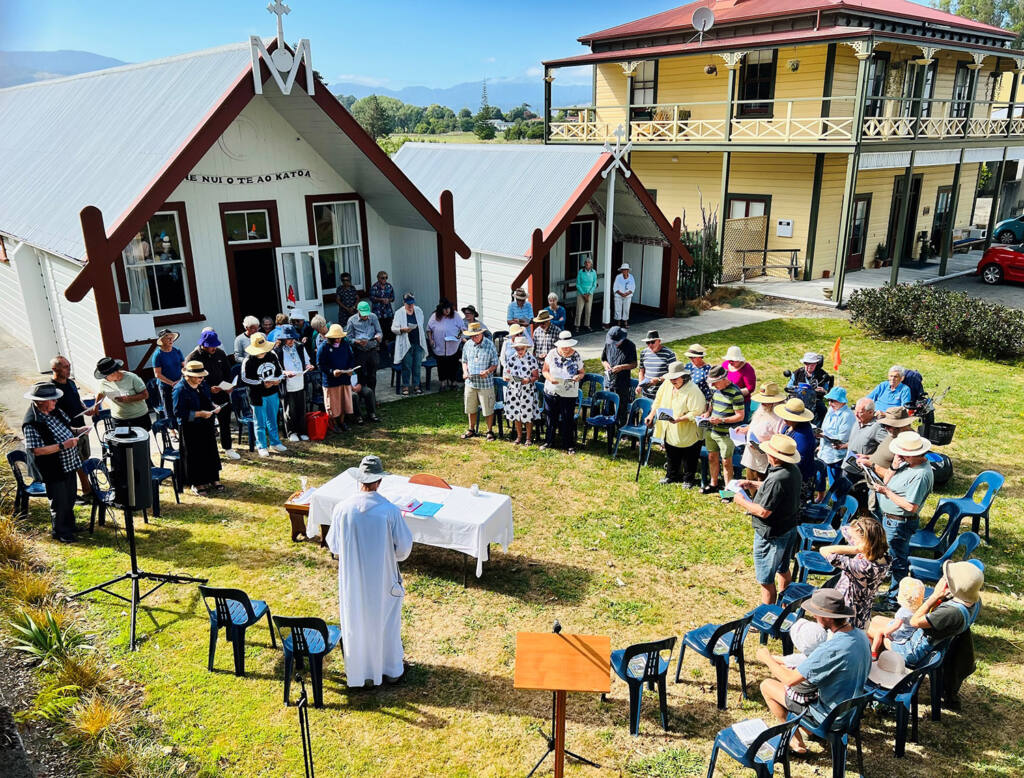WelCom March 2024
Throughout New Zealand on Waitangi Day, 6 February, Masses were celebrated to mark this special day to reflect on the meaning of Te Tiriti o Waitangi and its significance for our country. Pā Phil Cody describes the Waitangi Day Mass celebrated at Pukekaraka, Ōtaki.
The faith community at Pukekaraka, Ōtaki, celebrated Waitangi Day with a Eucharist on the marae atea of Hine Nui o Te Ao Katoa.
The setting before the Shrine of Mary of Lourdes ensured calm and focus.
About 55 parishioners gathered to pray for all involved with Waitangi. Several shared comments about ‘how moving it is to peacefully share and experience a unity of pupose in a deep respect for different cultures’.
That experience was evident in the use of both te reo Māori and English in Readings of the Word, Prayers of the Faithful and the Eucharist itself.
A very moving beginning set the tone in the reading of prayer that a Ngāmanu of the North composed after he signed the Treaty. It was read by a descendant of Ngāmanu, Wawata Johnson, and then the English read by his wife, Oriwia Raureti. One part of it reads:
Nau mai e Te Tiriti o Waitangi
Haere mai me ngā hua kei roto i a koe
Emerge O Treaty of Waitangi
Enter our realm with the bountiful gifts within you.
In his homily Pā Pita Healy sm spoke of the Treaty as a ‘Covenant’, written, translated, discussed and signed in a Christian context. ‘It is a Sacred Relationship which demands trust, affection and mutual care, a joining under God to be nurtured and protected,’ he said.
The theme of Treaty as a Covenant was further developed and discussed by our Anglican neighbours at Rangiātea with talks by the Reverend Rangi Nicholson and Hamish MacLean.
Beautiful but telling Prayers of the Faithful supported that. For example:
Lord, grant us the humility to acknowledge the past,
the courage to confront present challenges,
the hope to envision a future where we walk hand in hand,
celebrating the beauty of diversity
and the strength that comes from living together
in peaceful relationships.
E Te Ariki….
The Eucharistic Prayer for Reconciliation was used to further seek from God a blessing of peace and harmony and growth in God’s bringing Peace to us and our world.
The national anthem, E Ihowā Atua, was our final hymn.
Then of course our day was enriched by enjoying one another’s company over hand-made scones and tea!
